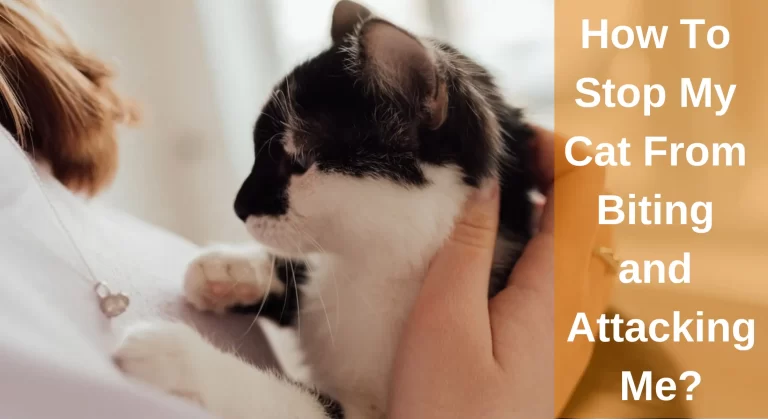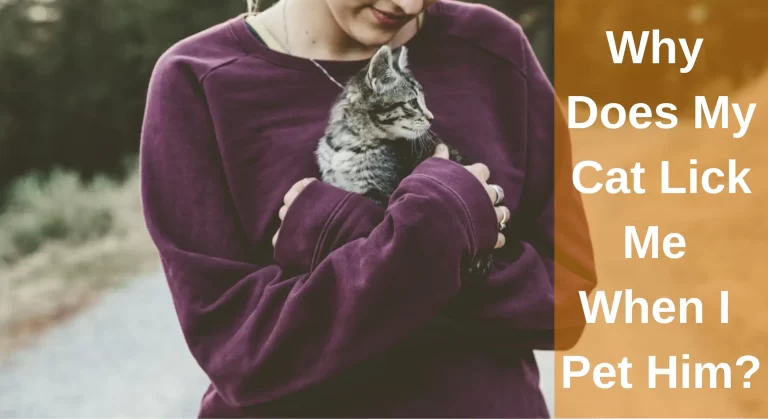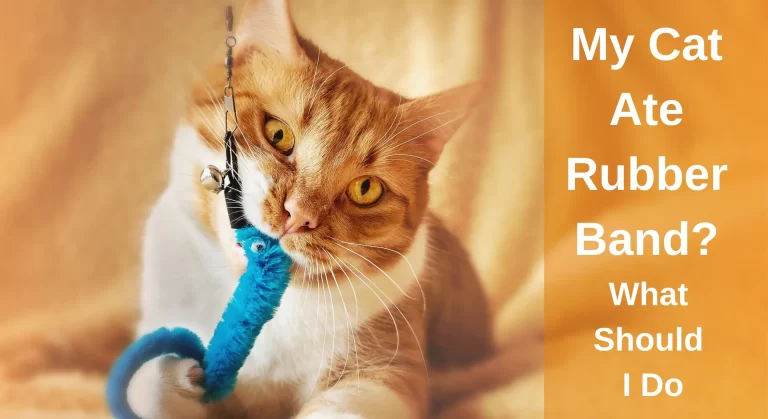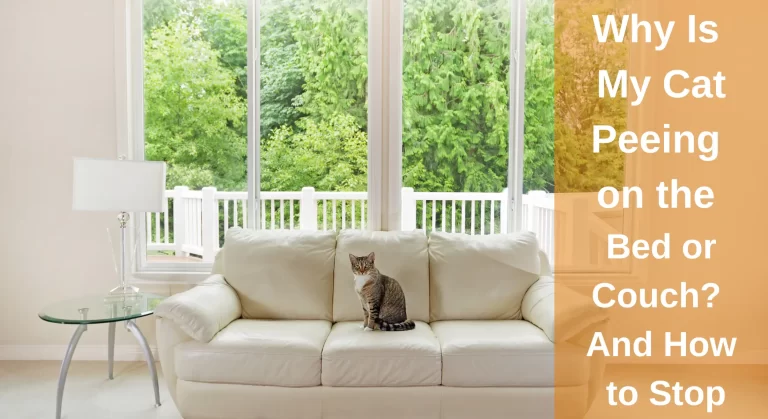How To Stop A Cat From Peeing On Clothes? [Answered]
Our cats are very clean animals and they should be properly groomed. Teaching them skills is difficult, but showing them how to use a litter box is quite easy. This is because, like us, they are worried about how their trash may affect the environment’s cleanliness. Because of this, it could seem strange if our cat urinates somewhere other than the litter box. Why does my cat keep peeing on my clothes?
Cats pee in the laundry or other inappropriate areas of the home, as it is an indication of a health problem. There are three main reasons for this: medical conditions, behavioural issues or, most commonly, dirty litter trays that cause them to urinate elsewhere.
Since it might be a health problem, just like when she pisses in the wrong places throughout the home. We need to solve this problem. The following article will provide you with a better understanding of this strange phenomenon and simple steps on how to stop a cat from peeing on clothes.
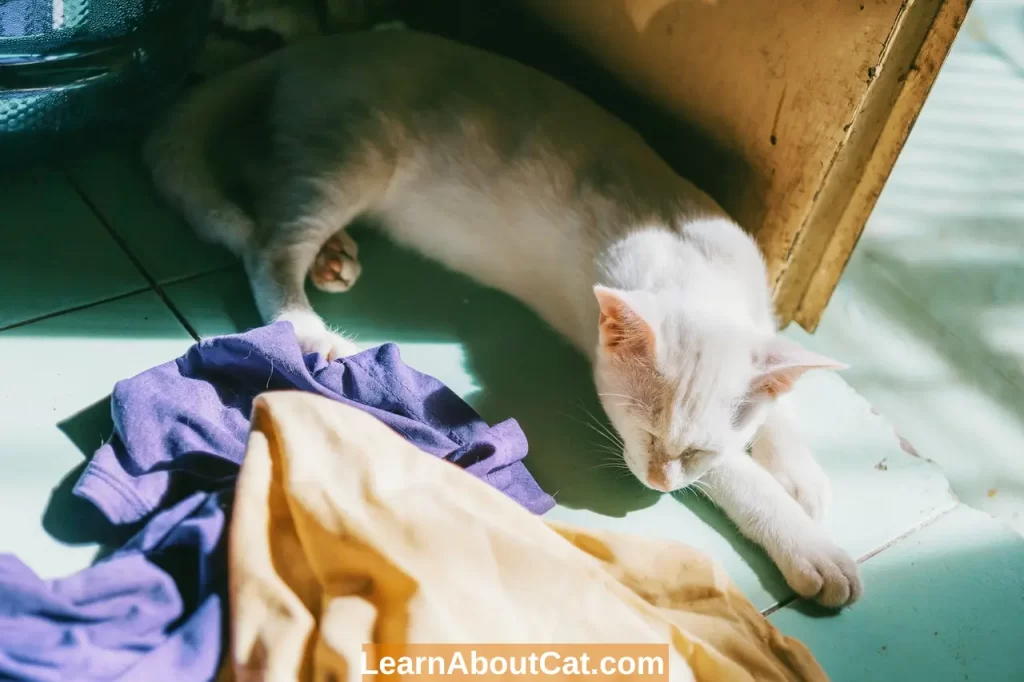
Reasons Why Is My Cat Peeing on My Clothes
There are many causes that cats to urinate on clothing, including health conditions such as (urinary tract infections, hyperthyroidism, diabetes, bladder stones, and bladder inflammation). They may also be jealous of another pet and should seek attention from its owner to compensate.
Cats may spray urine on clothing to attract mates once they have reached sexual maturity, at 5-6 months of age. Additionally, anxiety, stress, and fear can prevent bladder control from functioning normally.
Medical Disorders
Cats that pee on their laundry may be suffering from medical conditions that affect their urinary function. In this situation, cats might not reach the litter box in time, causing them to pee more frequently. Unfortunately, your laundry is the target.
The following are medical conditions that result in increased urination:
Feline Lower Urinary Tract Disease
Infection and inflammation of the urethra arise when bacteria travel up the urethra. They tend to lick their genital area, and you might spot blood in their urine if they are unable to pee. This condition affects both the urethra and bladder.
It could cause more frequent urine as well as uncomfortable urination. The more frequently your cat urinates, the more likely it is that it will do so on your clothing rather than in the litter box.
kidney Disease
The kidney system produces urine, concentrates urine, and ensures toxins are removed from the urine. Cats with kidney disease pee more frequently and have increased thirst because the renal system stops working properly.
Kidney impairment is characterized by frequent, diluted urine. Other signs of renal failure include pale gums, loss of appetite, vomiting, weight loss, and sluggishness. Along with frequent urination, bladder stones can also cause blood in the urine or vaginal licking.
Diabetes
With diabetes, your cat’s body is unable to control the levels of glucose or blood sugar because the pancreas is not producing enough insulin. Urine production, thirst, vomiting, lethargy, hunger, and weight loss all rise as a result.
Arthritis
Your kitty may have arthritis if she or she is eliminating your clothes. Consider using a tray with lower sides. Additionally, your veterinarian may suggest drugs for them.
Hyperthyroidism
This condition also causes an increase in urinary frequency. Your veterinarian can effectively treat hyperthyroidism in cats, which is a common illness.
2. Behavioural Issues
Our cat is definitely peeing on your clothes for behavioral reasons, as we’ve already discussed. If there have been no other changes in your cat’s health, the most likely cause is a change in behavior.
Because adult males regularly pee to establish their territory, which is the most common reason, your cat may urinate on clothing.
3. Stress
If you own many cats, bullies may choose the one that is peeing on your clothes. Your cat may feel frightened among other cats because of where the litter box is located, making the laundry basket or pile of clothes on the floor more tempting. Try putting a box wherever the timid cat feels safe and comfortable for it.
Also Read: Do Cats Pee When Scared Or Stressed?
4. Litter Box Issues
Litter box issues can arise for a number of reasons, causing your cat to relieve himself on your clothes rather than the toilet. What they are are these:
- Unclean litter box: It’s probable that your cat will not use the litter box if it hasn’t been cleaned or emptied in a while. Litter boxes must be cleaned every day.
- The litter box shouldn’t be overflowing with debris. Considering that cats like shallow litter, you actually only need a few inches.
- A litter box is high: If the sides of the litter box are high, your cat could feel that using it is too difficult, especially if you have an older cat.
- Not enough boxes: In general, even if you only have one cat, it’s a good idea to have more than one litter box in the house since you need one additional box for each cat. Two cats will use three litter boxes, therefore you will need three.
- Avoid hoods: Your cat can feel uncomfortable when it’s time to use the restroom if you have hoods or liners. If that’s the case, wearing your clothing could appear like a more appropriate and cozy choice.
- Change the location of the litter box. For instance, if the box is in the laundry room, your cat might not enjoy using the washer or dryer.
Find Out: Why Cat Peeing Over Edge of Litter Box?
5 Bullying of Cats
When the litter box is near the cat flap, there can be some uneasiness. Placing trays next to large windows is also guaranteed to cause problems if there is a dominating cat outside. Consider putting a tray where these cats like to hang out, such as beneath the dining room table.
Interesting Reading: Do Cats Pee When Scared Or Stressed?
6. Feline Markings
We can comprehend why cats do it by realizing that they don’t always urinate on garments to eliminate waste. Cats in the wild need to mark their territory in order to feel secure in their surroundings. By excreting small amounts of urine, they alert neighborhood cats and other animals to their presence.
There is a difference between inappropriate urination and marking behavior. We may do this by paying attention to the position they adopt. When peeing, a cat will squat and urinate as much as is necessary. The cat frequently stands up straight, tenses its tail, and pees a small bit when marking.
7. They Need Your Attention
Some cat parents mistakenly believe that their cats don’t want to engage with them. If you leave your cat alone for long stretches of time, don’t play with it, or ignore it, it may urinate on your clothes to get your attention. Play with your cat while making sure you have a lot of cat toys on hand.
8. A New Resident of the House
Cats typically urinate inappropriately, such as on clothing, when a new member of the family first moves in. This is related to both the stress brought on by the presence of a cat they see as a competition and the marking to establish the region as their territory.
How To Prevent My Cat From Peeing On My Clothing?
After understanding why cats pee on clothes, you can take steps to stop it. Below are some tips for eliminating this behavior.
Rule out the Cause of Inappropriate Urination: Our cat will need to see a doctor for pathological disorders. In these cases, providing the veterinarian with as much information as we can regarding the patient’s symptoms will aid in making the proper diagnosis. They might need to take a blood sample or undergo further tests.
While getting treatment early will help prevent the infection from spreading, it is still important to get it as soon as possible. It is possible for your vet to prescribe antibiotics to aid in the fight against some of these conditions, such as urinary tract infections. Once the infection has been treated, there will be no lasting damage.
Reduce stress: Physical symptoms can often reflect emotional problems, such as idiopathic cystitis, which is often caused by stress. Having a better quality of life will reduce stress This includes providing environmental enrichment and providing emotional support

The following are the main actions we must generally take to prevent our cats from urinating inappropriately:
- By neutering both male and female cats, indoor spraying can be prevented as hormonal changes begin to occur in both cats.
- Be careful of your cat’s need for solitude and peace. If we don’t want cats to urinate on our clothes, we must give them a peaceful and clean environment.
- Don’t reprimand or punish the cat. Negative reinforcement, which doesn’t address the problem and usually makes it worse, is what this is. For instance, they can start urinating on the bed.
- Clean the litter box completely on a regular basis. Cats will instead pee on your clothes and blankets if they don’t like litter boxes! It is crucial to maintain a high standard of litter box cleanliness. If you suspect that its location may be the problem, you should move it.
- Purchase multiple litter boxes: The number of litter boxes you need depends on how many cats you have. The number of litter boxes you need should be one more than the number of cats you have. The use of more than one litter box can be very helpful if you have a big house or a cat that has mobility problems. There can be a litter box on each floor of your home. That way, no matter where your cat is and how slowly they move, it can always get to the litter box on time.
- Ensure that they are not harmed or interfered with in any way by the household’s activities.
- Use catnip or artificial feline pheromones to encourage feelings of serenity and tranquillity.
- In case the problem persists, speak with a feline ethology expert.
Other Ways to Stop Cats Peeing on Clothes
There are a few home remedies you can try to prevent your cat from urinating on your clothes.
- It is recommended to use enzyme-based cleaners for disinfecting without using ammonia or bleach because ammonia can be found in cat urine, and it can actually make the cat pee in certain areas. The spraying of these products on clothing or urination sites is important for disinfection and odor control.
- By using positive reinforcement, i.e. rewarding desired behaviors, such as treats, affection, or positive language, you will reinforce desired behavior.
- Using pheromones to dispel residual odors and provide comfort to the feline can be achieved using household diffusers or directly sprayed on clothing.
- Your clothes should be hidden or kept away from your cat.
Also, Check Out: Can Cat Urine Cause Headaches
What Essential Oils Repel Cat Urine?
The smell of peppermint is extremely unpleasant for cats, and they try to avoid areas where this smell is present at all costs. Peppermint oil can be sprayed on places around the house where cats pee other than their litter to prevent them from peeing there. Essential Oil of Eucalyptus This oil has a minty, sharp scent.
Does Lemon Stop Cats Peeing?
If your cat prefers an alternative peeing spot, you can spray it with lemon juice to make it less appealing. You can also place its food bowl nearby since the area where they eat won’t be spoiled
What is the Best Homemade Cat Repellent?
Lemon juice, rosemary, and white vinegar – these are all things cats hate – can be mixed together in a spray bottle for easy use in the garden. The easiest way to control cats is to spray them near where they spend time – on planters, patios, or even inside.
Check Out: Why Is My Cat Peeing on the Bed or Couch?
How To Remove Cat Odour From Clothing?
Here are some tips for getting rid of cat pee odor.

- Put your clothes on separately. Washing your filthy clothes in the same load as your clean ones may cause the other items to smell, so avoid doing this.
- Regular laundry detergent and other everyday cleaning supplies like baking soda, vinegar, and hydrogen peroxide can get rid of the smell.
- As much urine as you can remove. Try to blot up all of the pee before applying anything to the clothing.
- Use enzyme cleaners. Enzymes are proteins that speed up chemical reactions. Enzyme cleaners convert the uric acid in cat urine into the fast-evaporating gases of ammonia and carbon dioxide.
- Soaking. The garment should be air-dried following a 10- to 15-minute soak in an enzyme cleaner. Blot up the enzyme cleanser and allow your clothing to air dry so that the uric acid may be completely broken down.
- Use washing machine: Your washing machine should be used to wash the stained items, ideally with an enzyme detergent. Allow your garments to air dry after that.
Also Read: The Ultimate Guide to How to Get Cat Pee Out of a Couch?
Frequently Asked Questions
What smells deter cats from peeing?
Using simple chemical deterrents like citrus peelings or coffee grounds scattered around the urinating area may discourage him from coming around. Several people suggest sprinkling pepper around, but if it gets into the cats’ eyes, it can damage them severely.
Will cat pee smell eventually go away?
There is uric acid in cat urine, which can be retained in carpet, fabric, and wood for years! Baking soda, vinegar, soap, and hydrogen peroxide may temporarily neutralize these odors; however, the odor will return on the next humid day. A humid day can cause the uric acid to recrystallize, causing the cat odor to resurface.
Do cats pee on your stuff on purpose?
The ASPCA states that your cat pees on your items as a method of marking them. The behavior of cat marking evolved as groups of cats attempted to identify who was in whose territory. As soon as they leave the group, cats claim their own territory, and in order to mark that territory they pee
Should you punish a cat for peeing?
Pet owners should never punish their cats for spraying in the house or peeing outside the litter box. Stress can be caused by this and make things worse for your feline. When cats urinate frequently outside of the litter box, they may be suffering from health issues, stress, or problems with the litter box itself
Does vinegar stop cats from peeing?
Vinegar can be sprayed outside as a deterrent for cats on areas such as garden edges, fences, garden decor, posts, and even plants. Place special attention on areas where your cats are constantly coming.
Wrap Up!
If your cat is peeing on your clothes, try not to give up since there may be a behavioral remedy. Never forget to rule out any potential medical conditions before continuing. You might also want to consider getting your cat spayed or neutered to help alleviate the issue.
Related Posts:
- Why Is My Cat Suddenly Pooping Outside Of The Litter Box?
- Why Is My Cat Peeing Everywhere All of a Sudden?
- Why My Cat Keeps Peeing In The Same Spot
- How to Make a DIY Cat Diaper?
- Can Cat Wear Diapers? Cat Diapers 101
- How to Keep Cat Litter Off the Floor?
- My Cat Keeps Going to the Litter Box But Nothing Happens!
- Top Entry Litter Box Pros And Cons
- How To Train a Cat to Use a Litter Box?
Who is Isabella?
My name is Isabella, and I am a dedicated and knowledgeable cat enthusiast. With years of experience caring for cats and a deep love for felines, I made a mission to help other cat lovers navigate the challenges of cat ownership.

